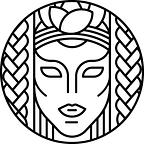For most use cases, smart contracts and DAOs need to be fed with factual information from the outside world. This requires oracles to supply offchain data to the blockchain.
Many projects try to approach the oracle problem developing solutions based on capital (stake). However, this leads to oligopoly where several big players can do a variety of undesirable things like colluding, censoring votings or even affecting votings results. And once they collude they won’t lose their stakes. We believe that the stake is an important component which can make oracles act honestly. However, the stake itself can not prevent big players from colluding. We rather need a decentralized network of small players acting independently.
The Idena network is essentially a ready-made network of oracles. Currently Idena is one of the most decentralized blockchains with more than 2k mining nodes. Every node has equal voting power and belongs to a certain individual. This level of decentralization is not achievable without Idena’s proof-of-person sybil protection mechanism.
Such a decentralized network of people has its own specificities:
- Direct voting by all people in the network almost does not work. People are busy or they do not care about voting results. Sometimes people are reluctant to vote even if they know that the outcome depends on their opinion.
- People get even more reluctant if there are too many voters and the outcome depends on the opinion of the crowd. They rather prefer to delegate their vote to someone else.
- Daniel Larimer proposed Randomized Hierarchical Representative voting where randomly selected groups of people select representatives which select representatives which again select representatives, etc. However, we believe that the proposed system will have problems very much similar to direct democracy voting.
- Often people lack expertise in the topic on which they are asked to vote (ex., the US Affordable Care Act known as Obamaсare was about 2,700 pages long when it was passed, and then some 20,000 pages of explanations of what’s in it were written).
- It is only the most active participants who vote, and the result can be biased because of it.
To neutralize possible problems, we offer a voting system based on the following four simple principles:
- Voting is performed by randomly selected participants. In general, the opinion of randomly selected participants represents the opinion of the whole network. The sample here is small and each vote is very significant. For instance, consider 50–200 participants randomly selected from 2k-10k network.
- The work of the selected participants is paid. They spend their time figuring out how to vote. They have to study the subject of the vote. And they are rewarded for the work they have done (paying everyone in the network for doing this work would be too expensive).
- Voting should be secret. Noone knows which participants are selected to vote and how they vote until the results are published.
- Voting as a minority is a loss. Those participants who have voted as the minority lose their staked deposit. And vice versa, those who are in the majority receive a reward.
What can oracles vote on?
- Certifying facts. For instance, a blockchain smart contract needs data on whether Trump has won elections in 2020 or not. The smart contract will initiate a voting for oracles who should certify the required data by reading newspapers.
- Price information. Oracles can confirm low frequency price information based on market price data.
- Polls. For instance, we could ask the network whether they like a logo. Obviously, with such types of questions someone who votes against the majority should not be penalised. However, even in this example randomly selected oracles allow to collect representative information about the whole network’s opinion.
Thus, the network of unique people can act as a network of oracles with appropriate economic incentives and be used to verify objective facts on the blockchain in order to make this data available to other smart contracts or offchain apps.
When will oracles appear in Idena?
It is scheduled for Q3-Q4 of 2020. Currently we are working on a predefined smart contract for oracle voting. Hopefully it will be available in the next releases. After that, the Idena app will support oracle voting.
***
Idena is a novel way to formalize people on the blockchain. It does not collect or store personally identifiable information. Idena proves the humanness and uniqueness of its participants by running an AI-hard Turing test at the same time for everyone around the globe.
The Idena blockchain is driven by proof-of-person consensus: Every node is linked to a cryptoidentity, one single person with equal voting power.
